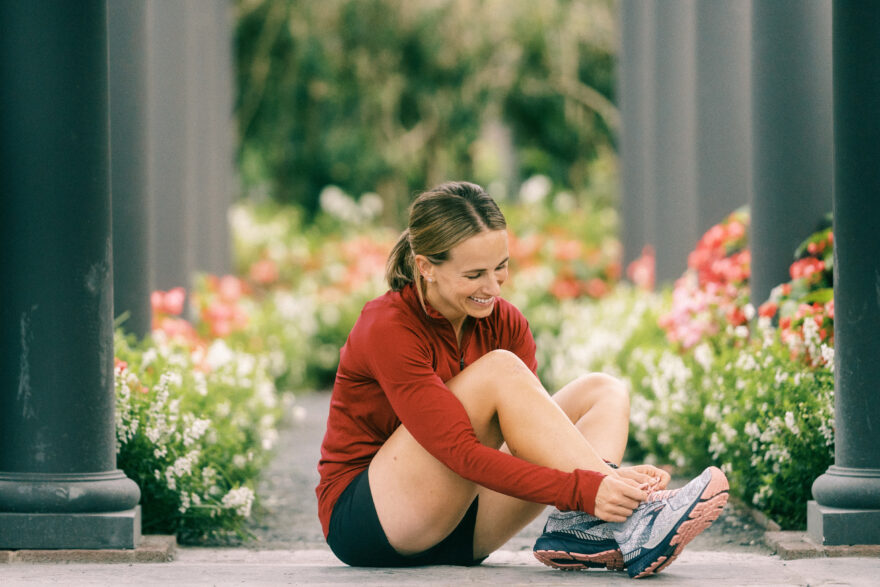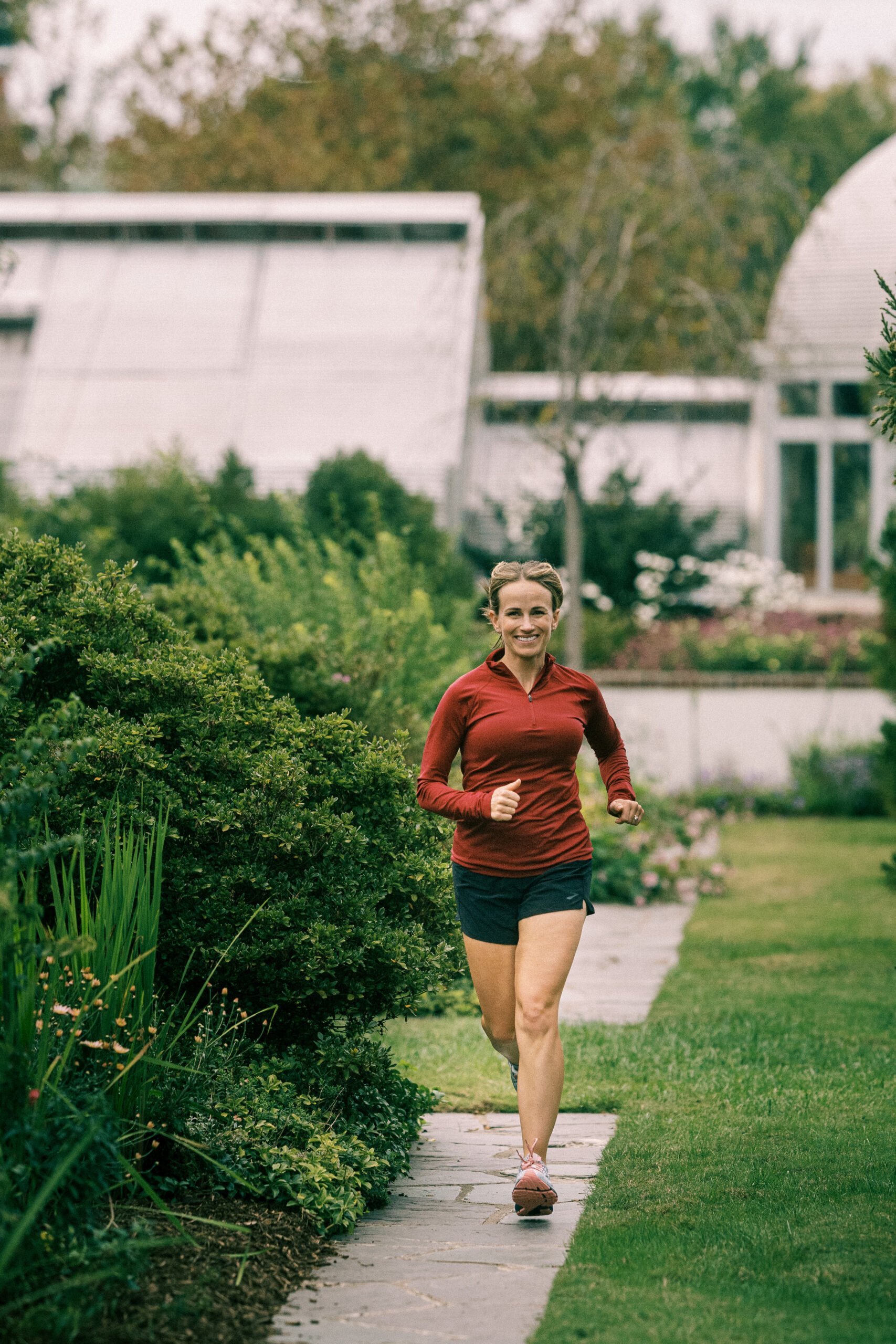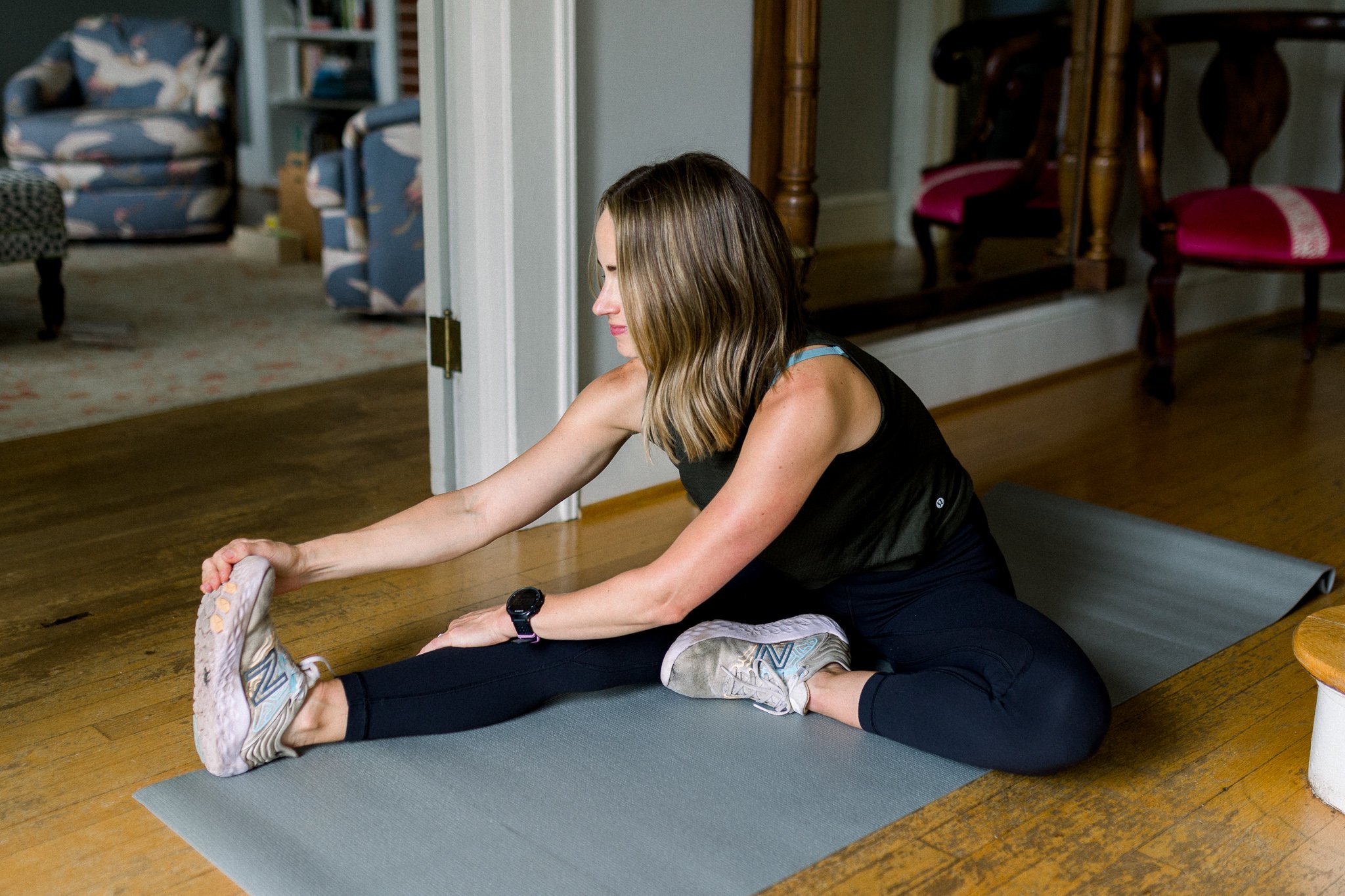


Running is one of the best forms of exercise for relieving stress, getting your heart rate up, and spending time in nature. And while it has lots of benefits, there are a few things to mindful of –especially if you’re new to running.
Running is a high-impact sport which means it causes a lot of force on your joints and feet. If you aren’t careful with your training and recovery, this can lead to patellofemoral pain syndrome (PFPS) which is also called “runner’s knee” (read more here in this British Journal). Runner’s knee is one of the most common injuries for runners, making it difficult to run or even complete simple movements. Thankfully, runner’s knee is generally avoidable.
Today I’m going to share a few ways you can prevent runner’s knee so you can stay on the roads.
Ready? Let’s jump in.

There are lots of practical things you can do to prevent runner’s knee. While women are more prone to knee injuries, according to the British Journal of Sports Medicine, many men struggle with runner’s knee too. Here are a few of my best tips to deal with knee pain or help prevent it. And, of course, if these things don’t help in a few weeks or your pain seems to be getting significantly worse with activity or doesn’t improve with rest, make an appointment to see your doctor.
Shoes are SO important for running. You need to wear a pair of running shoes that’s been properly fitted by a professional if possible. The best way to do this is at a local running store. Making sure your shoes are fitted properly for your specific gait, running goals and running experience is a great way to prevent injury.
Before heading out on your first run, take your running shoes on a quick walk. If your knees and ankles feel supported, you’re in good shape. Here are a few other ways I test to see if my shoes are right.
Warming up before a run is another way to prevent injury. When I was younger, I could hop out of bed and run 6 miles without thinking about it! Not anymore. I make sure to do some dynamic stretches before I head out on a run, and I take the first 5 minutes as slow as I need to in order to warm up all my muscles. When your muscles are warm, you’re less likely to feel pain or tugging on your knee.
When I’m stretching after my run, I hold stretches for longer and focus on my quadriceps, hamstrings and calves.

It’s astonishing how many running injuries are core-related. A strong core is essential for a strong body, and prevents a multitude of injuries. There are tons of free core videos on YouTube, and my friend Amanda has an online course for runners focused on core that you can find here. I personally love Pilates for core work! (I attend in-person classes and also use the Peloton app for at-home classes.)
It’s important to strengthen your legs as well. The Journal of Sports Medicine states that hip muscle dysfunction, poor core muscle endurance, and muscular tightness should all be investigated when identifying runner’s knee (source).
Running works lots of muscles, and in order to remain injury-free, they all need to be strong enough to handle the impact of running. Even 10-15 minutes of light weight training will make a difference. If you have 5-10lb weights at home, start by doing strengthening exercises like squats, lunges, and squat jumps. Plyometric strength (jumping or exploding out of a squat or lunge) can also contribute to injury prevention.
The goal is to have a strong body that can support the impact of running. This post has more strength training exercises that are great for runners.
If you notice your knees starting to flare up after a run, take some Advil and ice them. Make sure they don’t stay inflamed for long, since that can cause a host of other issues. If you have the ability to take an ice bath (or just put your legs in), do that for 10 minutes after a hard run. You’ll be shocked how much it helps since it knocks out inflammation quickly.
Be wise about running if you’re feeling consistent pain when bending your knee. I always say I’d rather run long term than run today, meaning I would rather run for the next 15-50 years than go on a run today because I’m craving it. Be wise!
Since running is a high-impact sport, it’s important to allow your body to rest adequately and that includes your knees if they’re acting up. When I was training for the 2019 Boston Marathon, my running coach helped me understand how much recovery I actually needed…it was more than I thought!
When I’ taking a rest day, I like to use a foam roller. Rolling your leg muscles is beneficial (although a little uncomfortable at times). If your budget allows, a sports massage is also a great way to recover.
If you need to take more significant time off of running, you may find a form of cross training that you love! I fell in love with our Peloton when I was grounded from running, and now it’s my favorite form of cross training. I also started taking pilates classes and LOVE them. Both cycling and pilates work my body in different ways that running, making me a more well-rounded athlete that’s less prone to injury. Cross-training is a must if you want to be a healthy runner, even if you’re not currently injured. Read why here.
If you’re noticing knee pain, don’t ignore it! There are lots of things you can do to prevent runner’s knee, and many of them don’t take a ton of effort. Even if you’re not currently experiencing pain, warming up, stretching, recovering properly, and wearing the right shoes are all STILL important in preventing common running overuse injuries. No running injury is 100% preventable, but we can do our best with what’s in our control.
If you’ve experienced runner’s knee, what helped you the most?


Leave a Comment
2 responses to “How To Prevent Runner’s Knee”
Yes! Thank you for this! I was told by my Doc once that I really needed to focus on building strength in my inner leg to compete with my stronger quads. It’s made the biggest difference in my knee pain.
Funny, I have to work on my outer legs and hips! It’s amazing how we all compensate in different ways!